Amidst the COVID-19 outbreak, the pandemic has stirred questions about how effective is the body in fighting infections. Naturally, the body fights infections by activating its immune responses which activate cascades of mechanisms in the body to eliminate the pathogen from the system.
Interesting Science Videos
Immunity definition
Immunity is the main process that defends the body from infections and sometimes, the body may be unable to elicit enough responses that can eliminate them. Therefore, it is important to consume immune-boosting foods to strengthen the body against seasonal infections such as cases of flu and viral infections, cancer, arthritis, allergies.
Sometimes, during a cold or flu season, one will wonder why some people do not get infected despite being in contact with those infected, considering the flu and cold are spread by air droplets. Yes, it’s because some people have a stronger immune system as compared to others. How does this happen? Remember, the immune system is the first line of defense against antigens that invade the body. so, with a strong immune system, there is less likelihood of contracting some illnesses but not totally.
A change in diet can, however, boost and strengthen the immunity of a person with weakened immune systems such as persons with lifestyle disorders like diabetes hypertension, some immune deficiency diseases like HIV/AIDs, immune-suppressed patients like those under medication, etc. For an immunity that is suppressed or compromised, it is important that such an individual is encouraged and administered with immune-boosting foods to strengthen them in reaction to foreign elements.
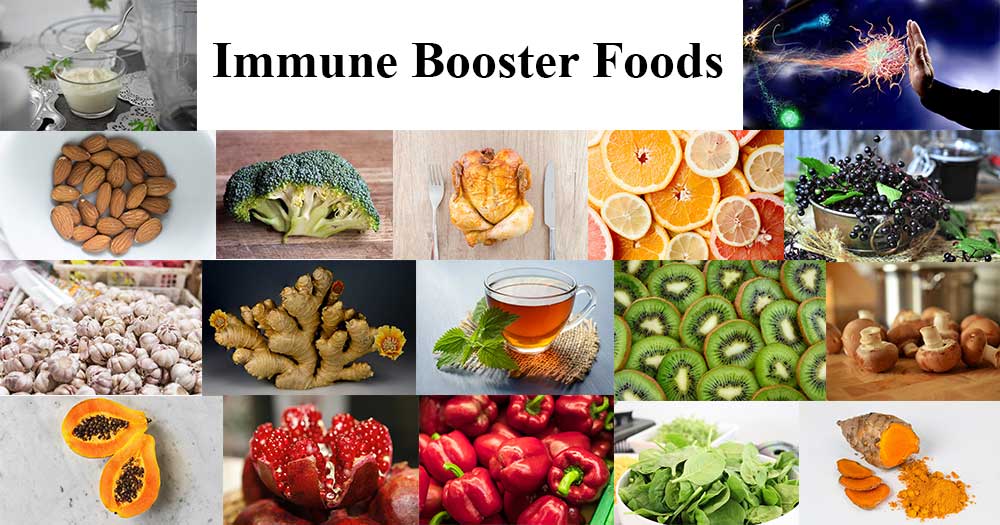
How the Immune System Works
The immune system is a natural defense system made up of a wide range of cells, tissues, and organs that work together to defend the body from foreign elements, known as antigens. These foreign elements include bacteria, viruses, fungi, and parasites, which confer infections to the body making one feel or become sick.
These foreign bodies are found in a wide range of environments so they can be acquired and transmitted in several other ways. A healthy body means a healthy immune system that has the ability to protect itself against these antigens. The body naturally produces white blood cells which play a key role in producing immune cells for body defense. The body also produces chemicals and proteins that can also attack and eliminate the antigens. The body’s defense mechanism finds the antigens and eliminates it before it can be able to replicate and spread.
Depending on the load of the antigen, the immune system responds rapidly by producing the specific responders against the antigen in large quantities. The effectiveness of the immune system is favored by its ability to recognize millions of antigens and producing specific immune molecules to combat the antigens.
Besides ita ability to attack the millions of antigens, it is essential to boost the immunity to act viciously against the antigens. To boost immunity means intake or consumption of certain food that provides additional benefits to the body. To boost immunity its important to take the right kind of foods in the right quantities.
Research has indicated that foods that have vitamin C are huge immune boosters especially for flu and the common cold.
Some of these foods that boost immunity and offer many benefits to the body include:
(Alphabetical Order)
1. Almonds as Immune Booster Foods
Almonds are a type of dry fruits that are majorly consumed to prevent and fight off colds. They are small in size but they contain a lot of nutrients beneficial to the body, whole body pulp made up of vitamins and minerals and healthy fats.
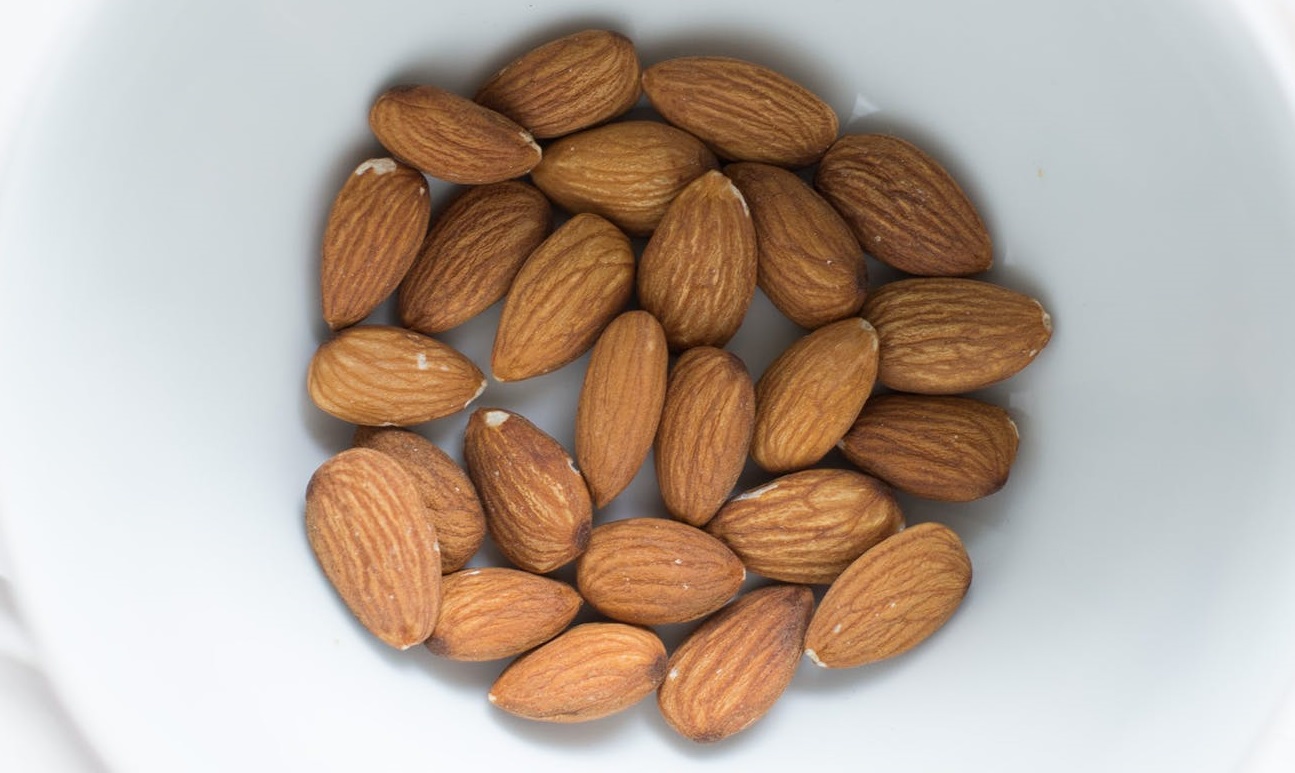
The benefits of almonds include:
- Lowering blood pressure
- Control blood sugar
- Regulate cholesterol level
- Ellevate constipation, respiratory disorders, and anemia.
- They also help in hair repair and growth, nail strengthening, and dental strength and care.
- They have Vitamin E and C which are great immune boosters
- A nut contains 5 grams of carbohydrates which maintain a low-carb level in the diet.
- It is rich in antioxidants that regulate free radicals preventing infections, with an anti-inflammatory effect,immune-boosting properties, and anti-hepatotoxicity effect.
- Almonds improve the movement of food through the colon, thereby preventing build-up and possibly the subsequent colon cancer.
- The presence of Vitamin E is an effective antioxidant that reduces the risks of heart diseases and coupled with magnesium they help prevent heart attacks.
- Almond oil is a nutritive element providing good health and functioning of the nervous systems. As a dry fruit, it contains riboflavin and L-carnitine which have been associated with increased brain development and activity. They are recommended for children to help brain development. They also reduce the risks of Alzheimer’s disease.
- The vitamins, minerals, and phosphorus have been linked to bone development and strengthening.
- Almond oil is used for massaging and improves skin appearance and reverses signs of aging.
Almonds can be consumed in different ways including, making almond milk a nutritive beverage better than milk; can be used as a top-up in yogurt or oatmeal; grinding the nuts to make powder which can be used to prepare almond butter by adding salt; sprinkling almond powder in vegetables and salads; used as a garnish in dishes and pizzas.
2. Broccoli as Immune Booster Foods
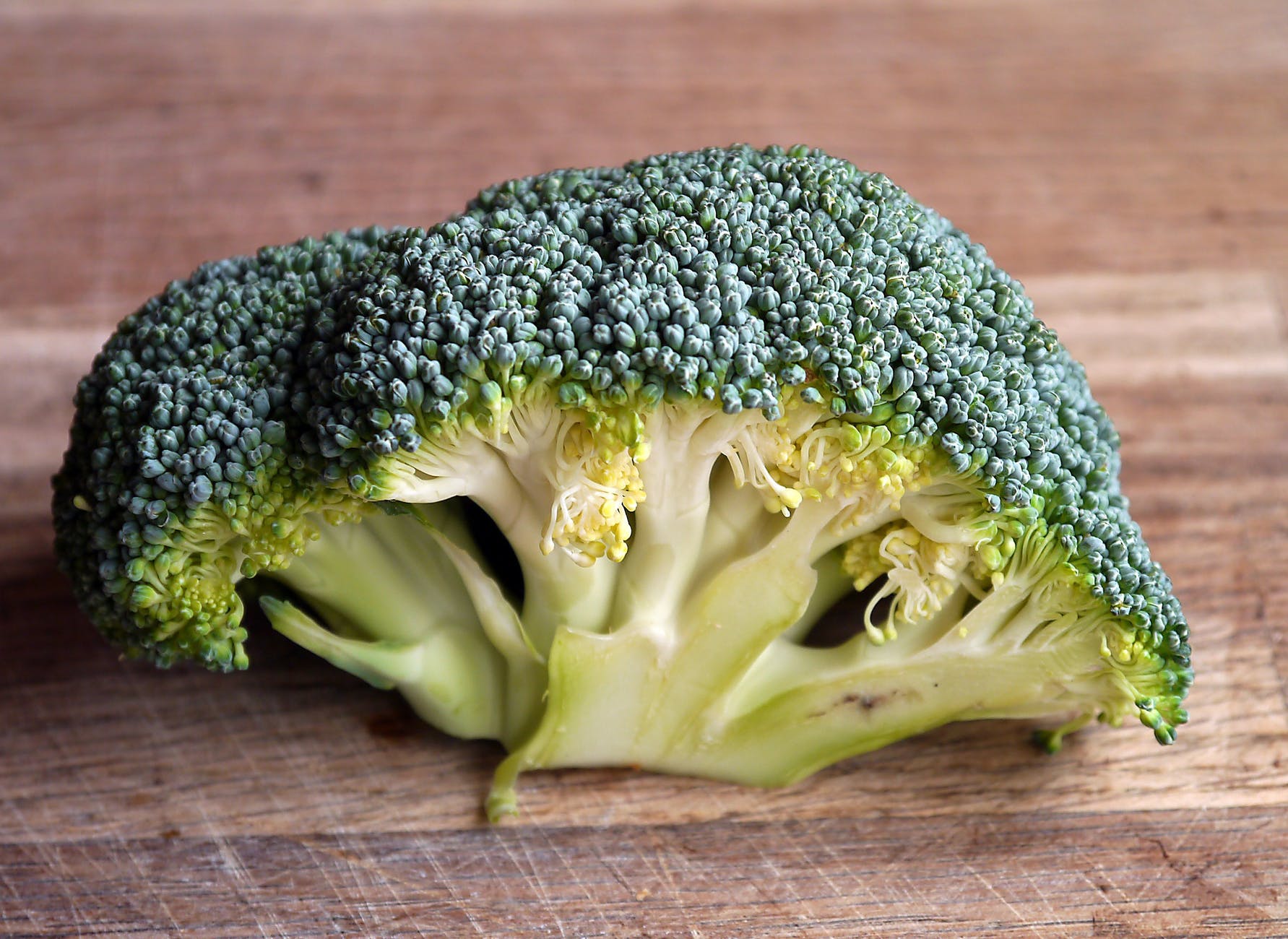
- This is a vegetable that is rich in vitamins and minerals and fiber.
- They have Vitamin A, C, and E, with several antioxidants, qualifying then as one of the healthiest vegetables.
- To ensure that you get all the nutrients from broccoli, cook it for a short time or eat it raw.
3. Citrus fruit as Immune Booster Foods

- This is a vitamin C food that mainly helped in treating flu and colds.
- They boost the immune system by increasing white blood cell production, which are the major elements involved in protecting and fighting infections in the body.
- These fruits include lemons, oranges, limes, grapefruits, tangerine, and clementines.
- However, it is important to consume citrus fruits daily to boost immunity continuously because the body does not produce vitamin C naturally.
- They can be consumed whole or they can be squeezed into the meal while eating.
4. Elderberry as Immune Booster Foods
- This is a type of bush tree whose berries and flowers have been studied and known for their health benefits for centuries now. It is scientifically known as Sambucus nigra.
- It has been used to make syrups, jams, food colors, wine, and lozenges.
- Elderberry extracts have proved to have antibacterial, antiviral, anticancer and anti-inflammatory properties.
- It has several flavonoids.
- Elderberries are added in syrups which are used as remedies for colds, flu, and bacterial sinus infections. It reduces the swelling of the mucus membrane.
- Being a plant that helps in the management of flu, it may also be helpful in providing a stronger immune response against COVID-19.
- They have a laxative effect.
- They also lower sugar levels for diabetic patients.
- Generally, elderberries stimulate the immune system to produce immune elements that protect the body from foreign agents.
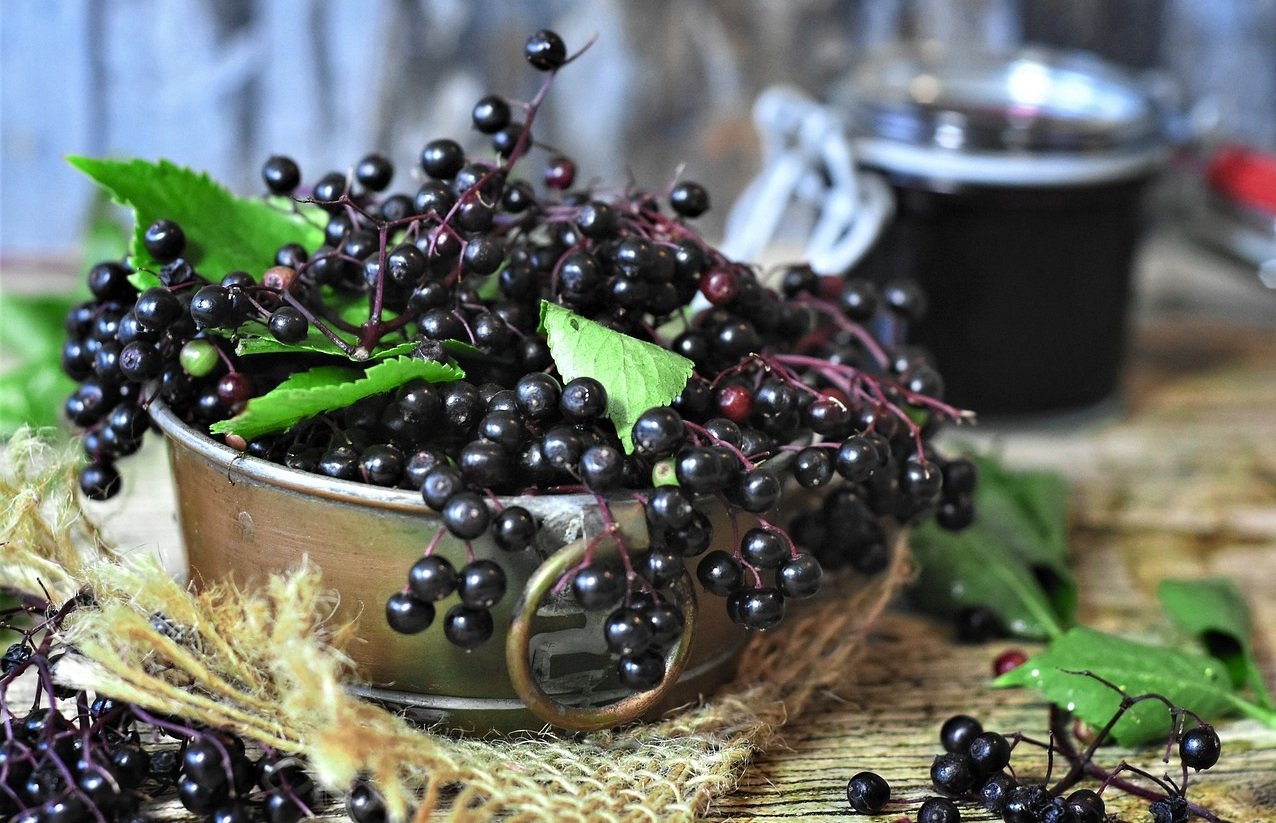
- Elderberries have been used to manage conditions such as;
- Headache
- Fever
- Constipation
- Upper and lower respiratory infections
- Joint and muscle pain
- kidney conditions
- epilepsy
- Minor skin conditions
- Stress
NOTE: Elderberry can counteract with certain medications such as diuretics, laxatives, steroids, chemotherapy, diabetes medications, and theophylline/ therefore it is important to check with a doctor or/and pharmacist if you are under medication before taking the elderberries to prevent interactions that may harm the body.
In addition to counterreaction with certain drugs, pregnant women should also consult with the doctor before taking them. In case of allergic reactions, terminate the consumption of the berries.
5. Garlic as Immune Booster Foods
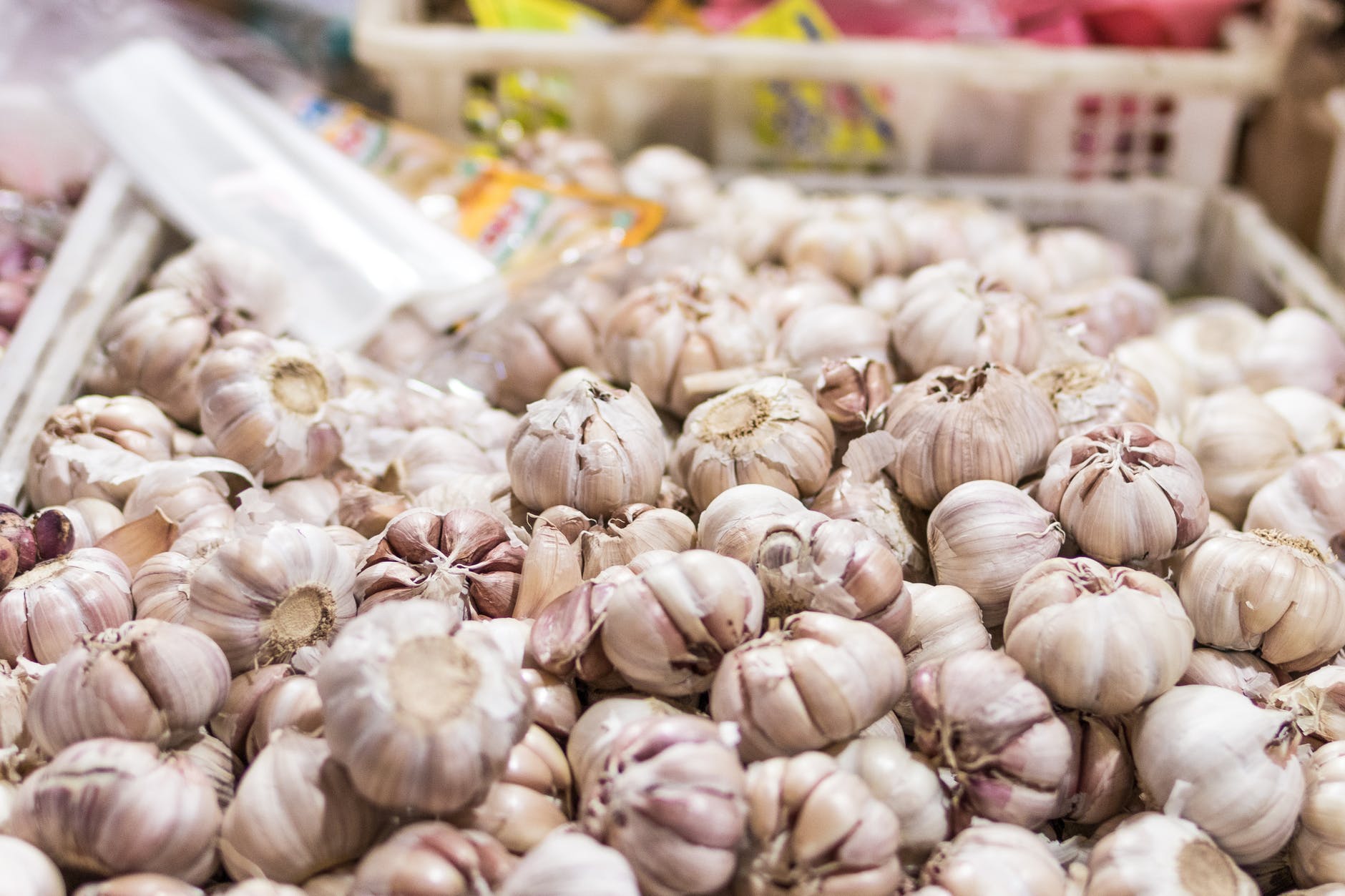
- Garlic is commonly used to cook food to add a little zing to a meal.
- It is the most popular supplement that is well known for its ability to boost immunity.
- For centuries now, garlic has been used to manage superficial and systemic infections. It has antibacterial, antiviral and antifungal properties.
- The garlic bulbs are also rich in antioxidants that contain free radicals that can boost the treatment of Alzheimer’s, cancers and heart conditions among others. it is commonly known for its role in managing and reduction of cold and flu symptoms.
- Especially during this season of COVID-19 outbreak, garlic consumption has become an essential part of most people’s diets.
- Research has shown that people who consume garlic in their diet have fewer occurrences of cold and flu as compared to those who do not take it at all or those who use over the counter medications.
- Even so, the consumption of garlic helps shorten the period of flu and cold infections.
- It has also been documented that garlic helps reduce rates of different kinds of cancer for example, people that consume garlic have reduced cases of colorectal cancers, pancreatic and liver cancer.
- It also plays a major role in reducing blood pressure and the reduction of the hardening of arteries.
- It is also a good relief remedy for the chronic pain caused by arthritis.
- The immune-boosting properties of garlic are due to the presence of high concentrations of sulfur-containing compounds such as allicin.
6. Ginger as Immune Booster Foods
- This is a root tuber that’s known for its anti-inflammatory effect against flu and cold, especially when an individual has a sore throat and/or inflammatory illnesses.
- It also reduces nausea.
- Ginger contains gingerol which helps reduce chronic pain and also reduces cholesterol levels.
- It has several antioxidants which are very effective anti-inflammatory and immune-boosting elements. These effects are enabled by the mechanisms elicited by the body during an infection whereby, free radicals are the body causing oxidative stress. These free radicals combine with the antioxidants produced by ginger causing the anti-inflammatory effect and the immune-boosting properties.
- The anti-inflammatory effects help protect the body against arthritis, cancers, neurodegenerative disorders, and hypersensitivity.
- It has also been proven that ginger has antibacterial and antiviral effects.
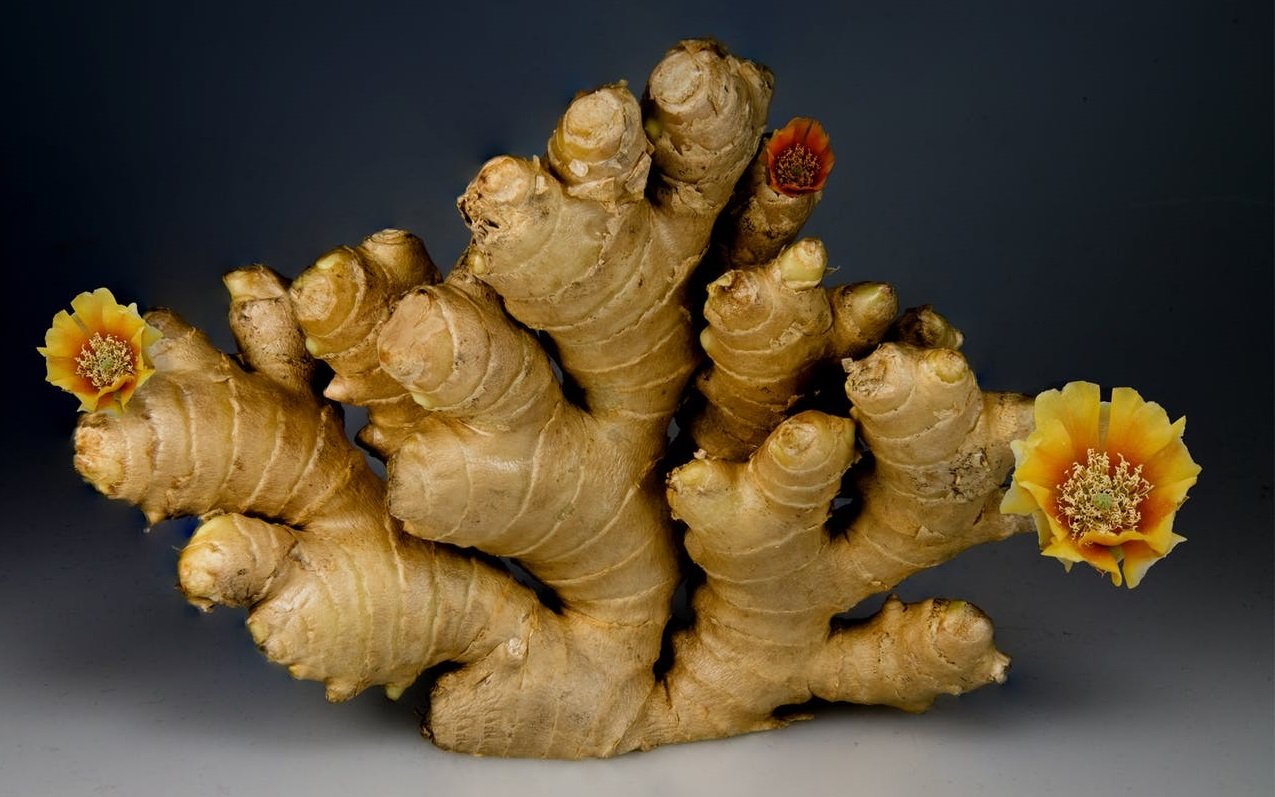
- Ginger can be eaten in various ways:
- Adding grated ginger in hot tea or chocolate
- Grated ginger can also be added to pastries when cooking such as muffins and cupcakes, cookies, etc
- It can be used to cook and marinate meats and chicken and vegetables as well.
- It can be added to honey and hot/warm water.
7. Green Tea as Immune Booster Foods
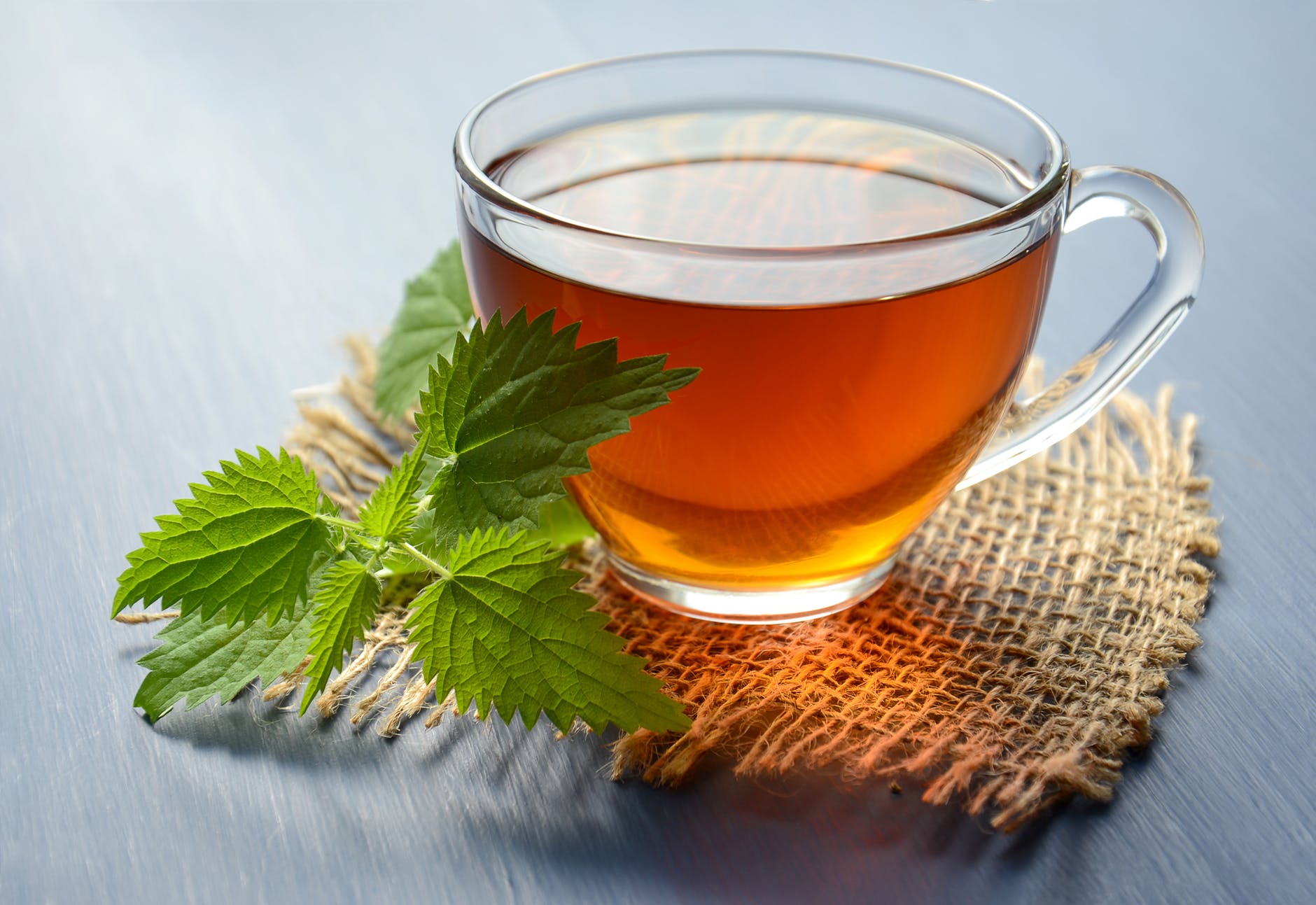
- This is a herbal type of beverage packed with flavonoids.
- They are natural anti-oxidants, which has several polyphenols with anti-inflammatory properties which prevents premature aging.
- The antioxidants protect against cell damage which may cause chronic illnesses.
- They also have a common antioxidant known as epigallocatechin gallate, EGCG which has immune-boosting properties.
- Green tea has caffeine and L-theanine an amino acid that provides the calming effect, by optimizing brain function and enhance memory, elevate mood and cognitive performance.
- L-theanine also helps in the production of T-cells that fight germs.
- Green tea’s ability to counter oxidative stress also makes it a potent protector against neurodegenerative disease, including Alzheimer’s disease and Parkinson’s disease.
- It also helps manage and maintain body weight but reducing the cholesterol content
- They are great immune boosters because they have antioxidants
- They have an anti-angiogenesis activity, therefore, reducing the risks of cancer and also blocking the spread of cancer cells.
- They help strengthen bone density and bone development preventing occurrences of osteoarthritis and bone degenerative defects.
- They help in balancing sugar levels and reduce blood sugar in diabetics.
- They also maintain blood pressure and prevent heart attacks and strokes.
- They protect the skin from ultraviolet rays thus reducing skin aging.
8. Kiwi as Immune Booster Foods

They are made up of several essential nutrients such as Vitamin C, K, and Potassium. Vitamin C boosts white blood cells to fight infections and the other nutrients are essential for maintaining proper body functions.
9. Mushrooms as Immune Booster Foods
These are edible fungi, naturally saprophytic, acquiring their nutrients from the dead decaying matter of plants and animals. they are originally from the family of Agaricus. There are over 14o,000 varieties of mushroom species, which vary in size, shape, color, texture, and properties, but only 9-10% of these mushrooms are known and have been studied for their health benefits.
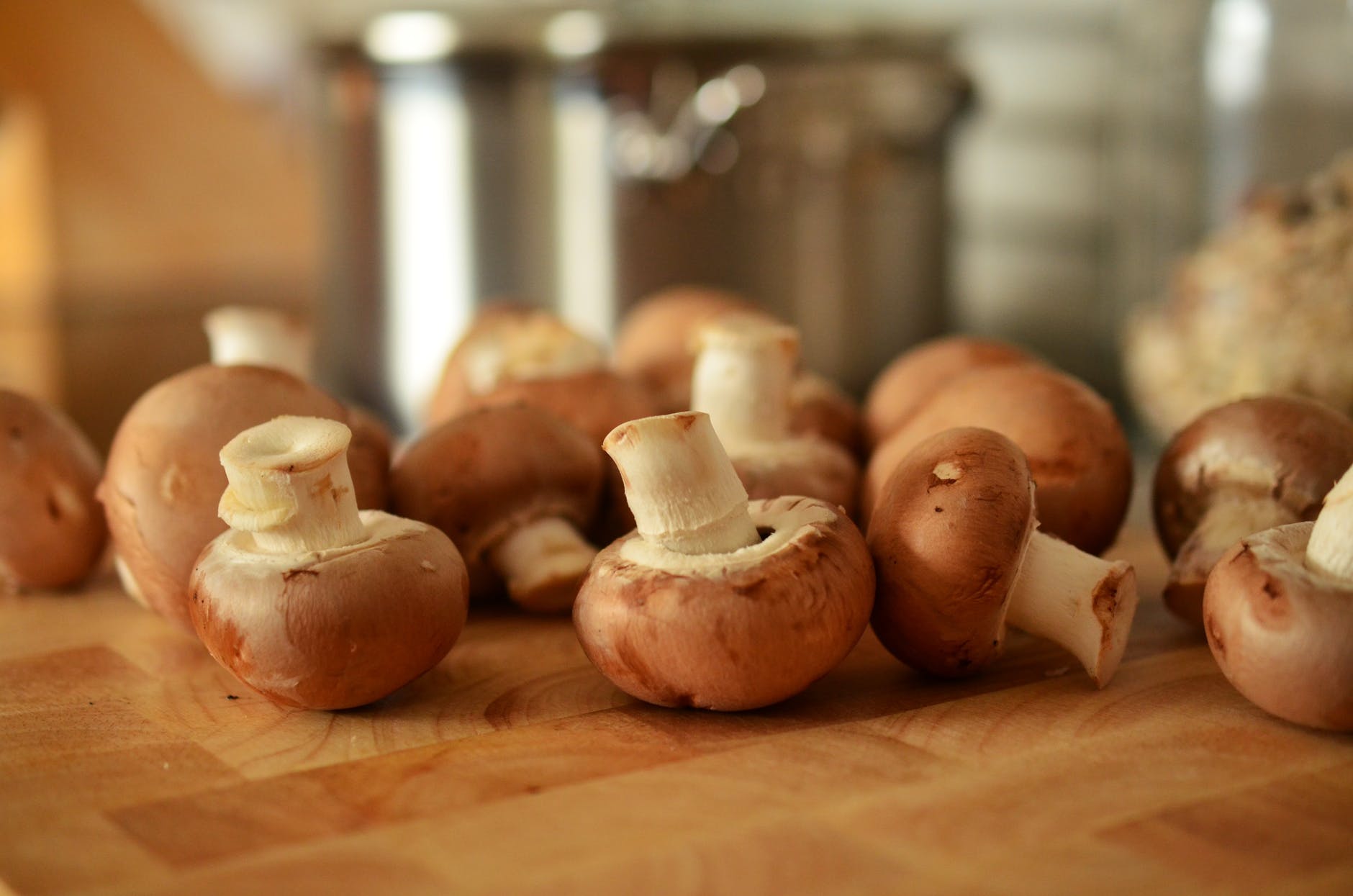
Mushroom consumption has been proved to have high immune-boosting ability and the question is How?
- Mushrooms have high quantities of Vitamin B (riboflavin, folate, thiamin, and Niacin), Vitamin C, Vitamin D, Potassium, Magnesium, sodium, phosphorus, choline, calcium, and selenium which are very essential in boosting the immune system.
- The selenium mineral has anticancer, antioxidant and anti-inflammatory properties. Therefore, the presence of selenium in mushrooms is an implication of its importance in reducing cancer such as lung cancer, prostate cancer, and breast cancer according to the National Cancer Institute.
- Selenium also reduces and prevents heart disease risks, and thyroid disease. However, more research and trials are being done to confirm these properties.
- Choline is also an antioxidant known to reduce risks of prostate cancer, studies have proven.
- The mushrooms are well known for their immune-boosting properties. They have a special amino acid known as ergothioneine, a very powerful antioxidant which provides protection from free radical during infections and they also boost immunity.
- Some mushrooms have natural antibiotics that inhibit microbial growth and some fungal infections. these naturally produced antimicrobial properties also boost immunity by stimulating and regulating its responses.
- Mushrooms are complex carbohydrates (Polysaccharides) which also have an immune-boosting effect.
- Other important properties of mushrooms include:
- lowering cholesterol levels by using its fiber and enzymes to balance cholesterol levels.
- they are low energy and low carbohydrate foods which are ideal for a diabetic individual diet
- they have high quantities of calcium which help in bone growth and strengthening preventing bone defects like osteoporosis and bone degradation.
- presence of vitamin D help in the absorption of calcium and phosphorus which are very essential to the body.
- presence of antimicrobial agents naturally produces by mushrooms helps in the healing of stomach ulcers and wounds.
- they have potassium which is a natural vasodilator thus it plays a primary role in lowering blood pressure hence reducing conditions of heart attacks and stroke.
- mushrooms are also good supplements of folate which are required by pregnant women to boost fetal health.
Despite having all these benefits, mushrooms are known to also have side effects such as some mushrooms if not handpicked well, can be poisonous causing severe poisoning symptoms, nausea, vomiting, cramping, convulsions, coma, and even insanity. Therefore, avoid ingesting discolored mushrooms (rotten and sporing) or colored mushrooms.
Mushrooms are edible when cooked and well seasoned. they can be eaten with egg omelets, vegetable burgers, vegetable soups and pizzas.
Some mushrooms that are known for their importance in immune-boosting abilities include Turkey tail mushroom, Maitake, and Shiitake Mushrooms, Tremella Mushrooms.
10. Papaya as Immune Booster Foods
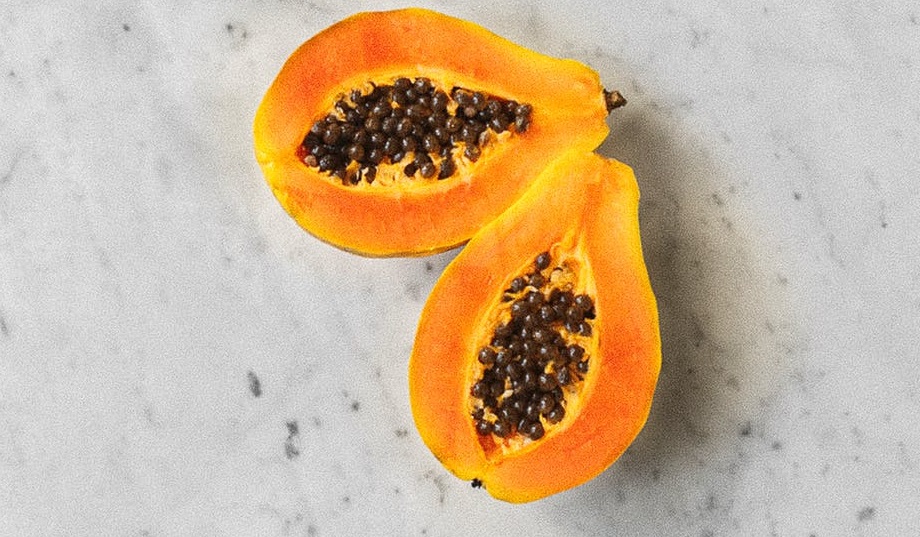
- This is a nutritious fruit that is made up of large quantities of Vitamin C.
- It has digestive enzymes called papain which have anti-inflammatory effects.
- Papain also acts as a laxative, reducing constipation.
- They also have potassium, Vitamin B, and folate which have overall positive health properties.
11. Pomegranate and pomegranate juice as Immune Booster Foods
This is a shrub that produces red fruits. Its scientific name is Punica granatum. Its benefits have been studied and are still being studied and here, I will cite some of its benefits.
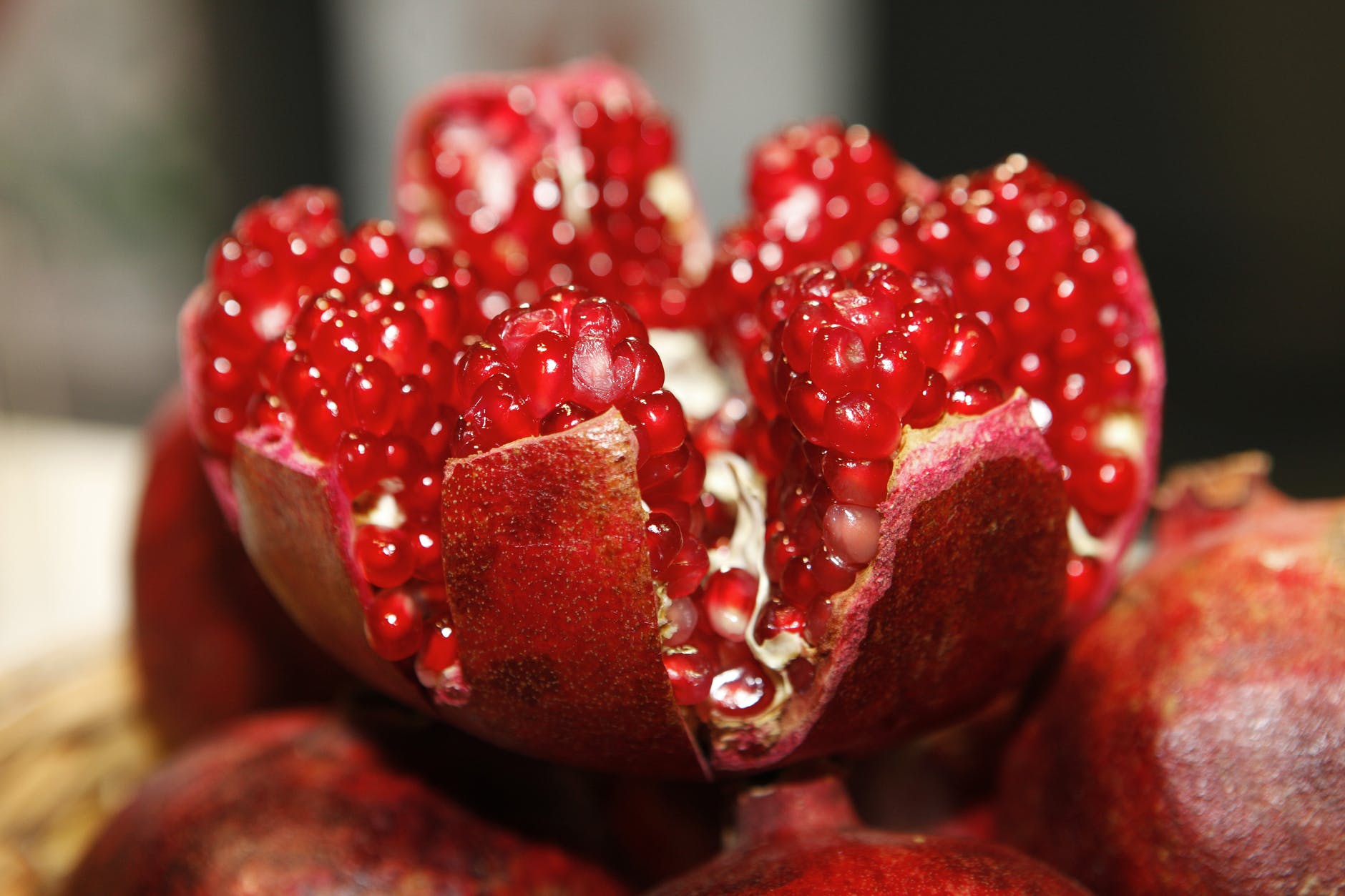
- Pomegranate seeds have a bright red color acquired from polyphenols, a powerful antioxidant that is at 3 times higher as compared to other fruits even red wine and green tea. The antioxidants help in the removal of free radicals which may cause cell damage and reduce inflammations.
- Compounds produced bt pomegranates have an active antibacterial activity against E.coli, Yersinia, salmonella, shigella, Clostridium, Staphylococcus aureus, Listeria. They inhibit bacterial growth in the mouth which may cause periodontal disease, plaques, and gingivitis.
- They also have antiviral activity against viral flu and herpes.
- They also promote the growth of beneficial gut flora that boosts immunity such as Lactobacillus and Bifidobacterium.
- They are rich in Vitamin C with a single pomegranate fruit possessing about 40% of Vitamin C content a day. Making juice from the pomegranate seeds breaks down Vitamin C providing more nutrients.
- Preliminary research recently showed that pomegranate juice helps to stop the growth of prostate cancer cells and reduce the risks of cancers.
- The antioxidants in the pomegranate juice have antioxidants that slow down the progression of Alzheimer’s and protect memory.
- They reduce gut inflammation and improve digestion therefore it is beneficial to people with Crohn’s diseases, ulcerative colitis, and bowel disease. In case of an allergic reaction that causes diarrhea, avoid taking the fruit until the bowel movement stops.
- Flavonols found in pomegranate juice blocks inflammations that cause and progress osteoarthritis and cartilage damage. More studies are being conducted in regard to its role in osteoporosis arthritis and other joint inflammations.
- This is a healthy heart fruit which protects the heart and its arteries. a few studies have shown that pomegranate juice improves blood flow and prevents the hardening of the arteries. It also reduces the accumulation of cholesterol in the arteries. But note that it can affect blood pressure and can react to cholesterol medication.
- Pomegranate juice reduces systolic blood pressure which promotes heart health and reduces blood pressure.
- They are a very good source of folate, potassium and Vitamin K.
- It is also a memory booster, at least intake of 8 ounces of pomegranate juice daily improves learning and memory.
- It also reduces risks of infertility in women and increases levels of testosterone in men and women.
- It is also used as a remedy for diabetes by decreasing insulin resistance and lowering blood sugar.
- Pomegranate can be consumed by blending juices, added to lemon juices, adding color to fruit salads and to make meat tasty.
12. Red bell peppers as Immune Booster Foods
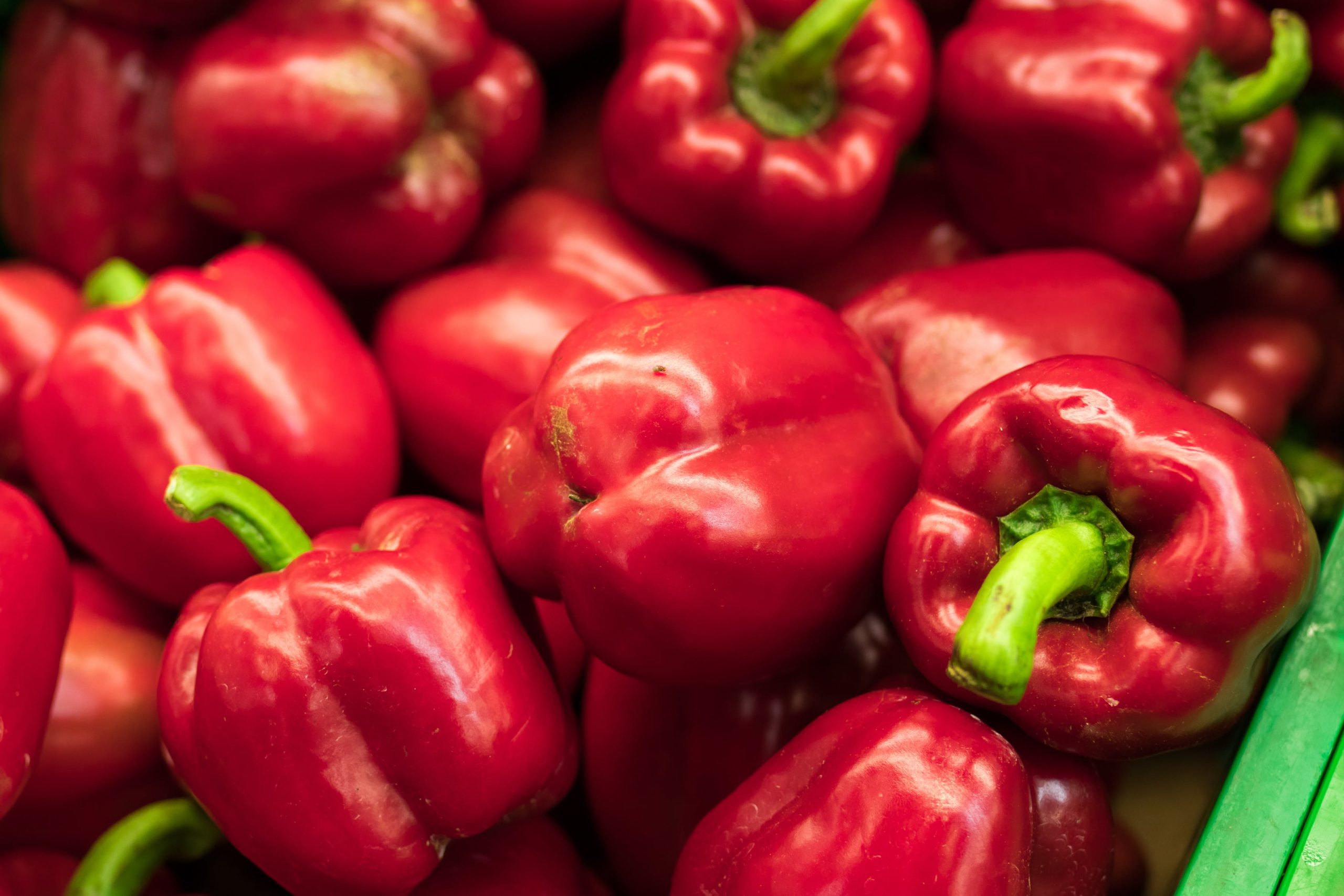
- This pepper has twice the amount of vitamin C the number of citrus fruits.
- They also have beta carotene are also very efficient immune boosters.
- In addition to boosting your immunity, red pepper also plays a role in maintaining healthy skin and eyesight.
13. Spinach as Immune Booster Foods
- This is one of the richest green vegetables, otherwise known as a superfood, known for its richness in Vitamin A, C, fiber, beta carotenes, Magnesium, calcium, iron and several antioxidants which are properties that increase the body’s ability to fight infections.
- It is a dark, leafy green vegetable with benefits of skin, hair and bone health.
- It is healthy when cooked in low/medium heat (lightly) which allows the release of Vitamin a and oxalic acids and to preserve the vegetable nutrients.
- They are also essential nutrients to mediate cell division processes and DNA repair.
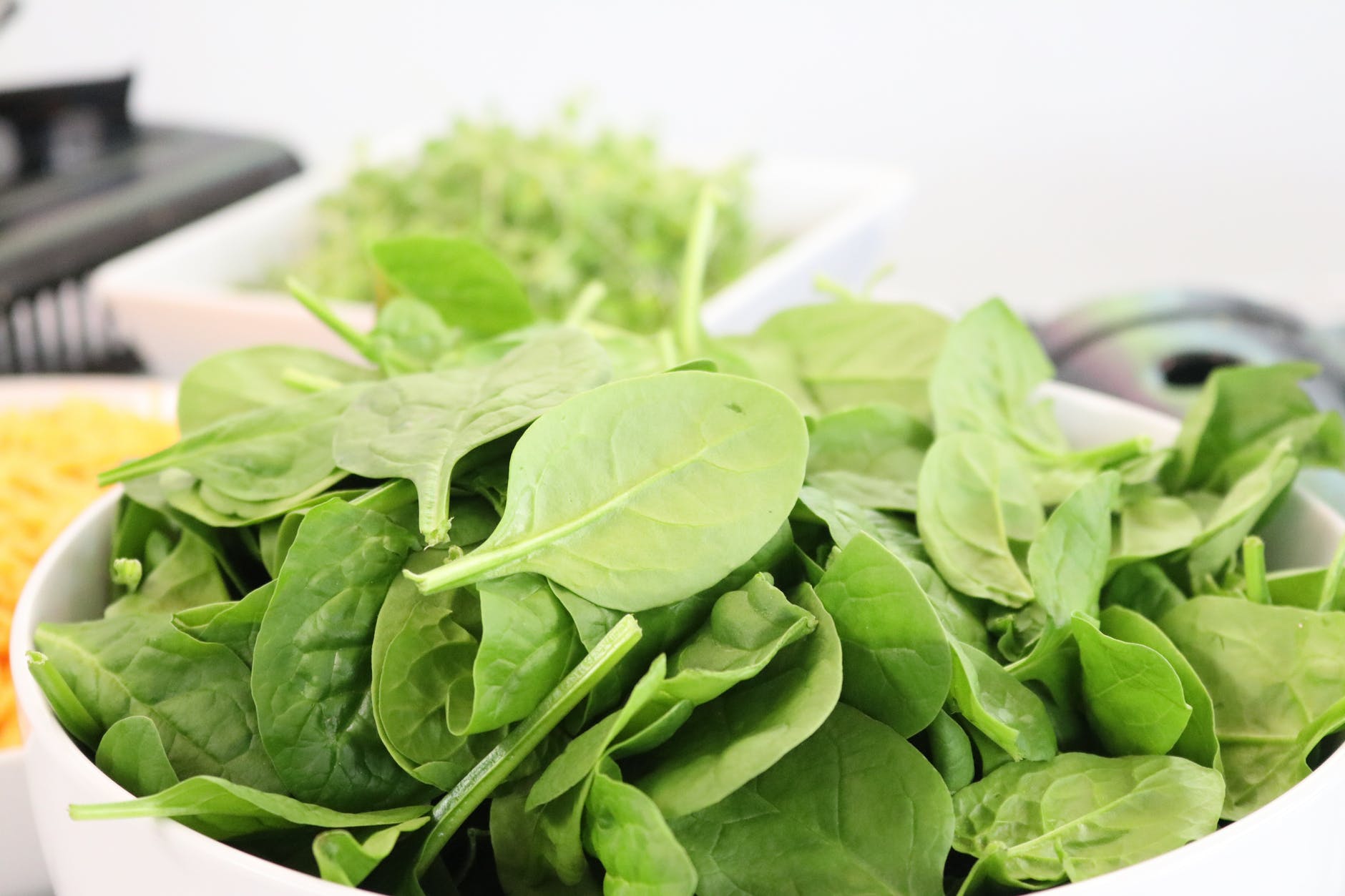
- Benefits of spinach include:
- it contains antioxidants such as alpha-lipoic acid which lowers glucose levels, increasing the sensitivity of insulin and prevents oxidative stress caused by the effects of diabetes.
- Alpha-lipoic acid also decreases peripheral neuropathy in diabetics. Alpha-lipoic acid can be prepared as an oral supplement with the same benefits.
- when consumed raw or lightly cooked, it preserves the chlorophyll pigments, whose benefits have been studied in animals and one of them being the blocking/prevention of the carcinogenic effect of heterocyclic amines.
- presence of the beta-carotenes reduces the risks of asthma, especially in children.
- the combination of iron and vitamin K strengthens bone preventing bone fracturing and bone defects.
- spinach has enough fiber (roughage) quantities that prevent constipation.
- vitamin A produced by spinach prevents acne and skin abrasion.
- Vitamin C also contributes to the production of collagen that is essential in strengthening hair and also hair growth and healing of skin abrasions.
- iron is important in the production of red blood cells maintaining blood levels preventing the development of anemias.
Excess consumption of spinach can cause accumulation of potassium which may damage underdeveloped kidneys.
Spinach can be prepared in several ways; spinach-artichoke dip, creamed spinach, spinach lasagna, garlic sautéed spinach, and spinach and cheese stuffed pasta shells.
14. Turmeric as Immune Booster Foods
This is a very common ingredient that is yellow in color, with a bitter test famously used an anti-inflammatory effect.
It is used as a spice and as a medicinal plant. Turmeric is a very nutritive food mainly used as a supplement. It also has major benefits for body and brain development.
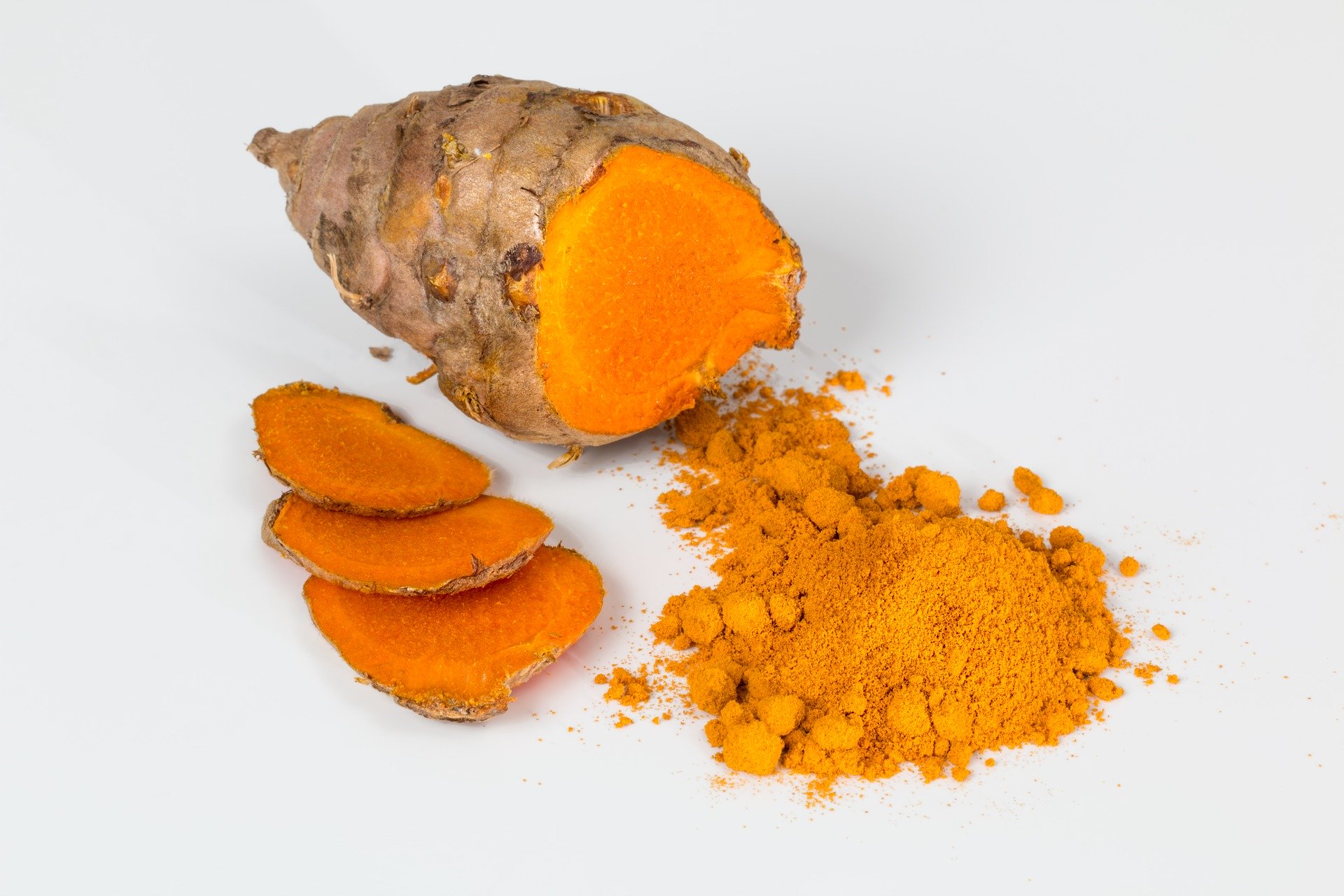
- Curcumin is the main active ingredient in turmeric with powerful anti-inflammatory properties, which blocks inflammation at the molecular level.
- Curcumin has also boosted brain development, improved brain function and reduces the risks of brain disease.
- They are also very strong antioxidants which reduce skin aging and prevention of diseases by blocking free radicals.
- They have high quantities of curcumin which contributes to decreasing exercise-induced muscle damage.
- It is used to relieve the pain caused by osteoarthritis and rheumatoid arthritis.
15. Yogurt as Immune Booster Foods
- Good and beneficial yogurt has a live and active culture that stimulates the immune system to help fight diseases. It is a fermented dairy product prepared from milk with added probiotics and sugars or/and flavors bacteria. During bacterial fermentation, lactic acid is produced which makes milk proteins to curdle producing a unique texture and flavor.
- Having been consumed for hundreds of years, its been proven to be very nutritious, and a great immune booster that fights diseases.
- It is a great source of Vitamin D, which regulates the immune system and boosts natural defense mechanisms against diseases.
- They can be taken unsweetened or flavored. Unsweetened yogurt is the best which can be mixed with fruits and honey to test. Plain yogurt without added colorants is a white, thick liquid with a tangy flavor.
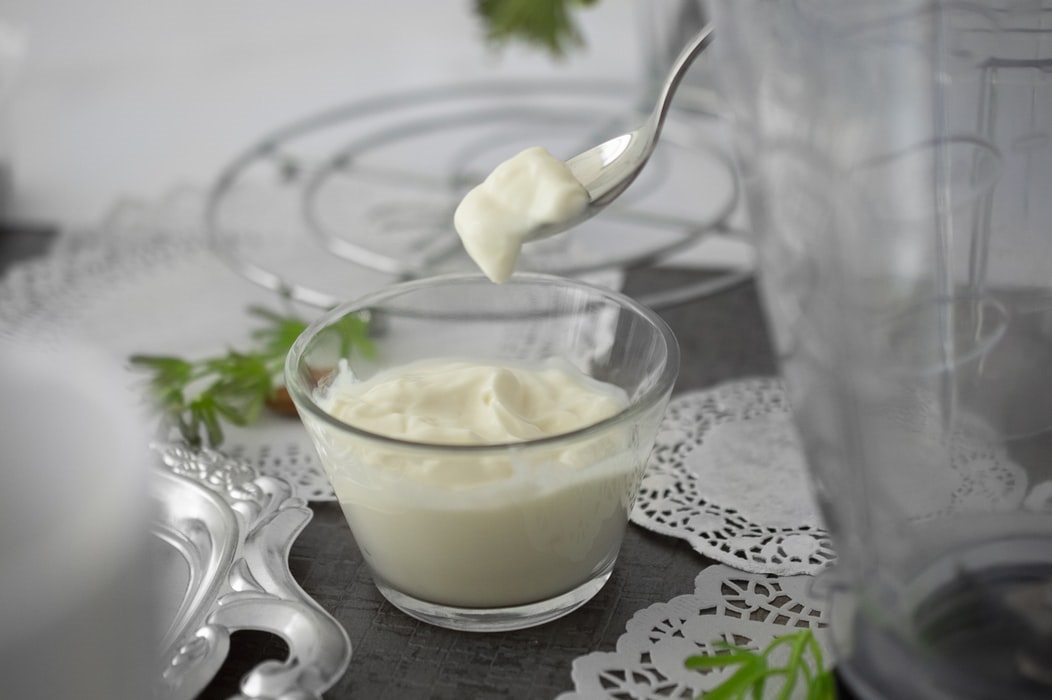
- Its benefits include:
- they contain calcium, a very essential mineral for growth of teeth, and bones. A cup of yogurt offers at least 49% of calcium.
- It is also high in B vitamins, particularly vitamin B12 and riboflavin, both of which may protect against heart disease and certain neural tube birth defects.
- A daily dose of yogurt gives 38% phosphorus, 12% for magnesium and 18% for potassium. These minerals regulate blood pressure, bone health, and body metabolism.
- They have fortified Vitamin D which promotes bone and immune system health reducing risks of diseases like heart disease and depression.
- Yogurt contains about 200grams of proteins which play a major role in increasing energy metabolism. they also regulate appetite and delay hunger as they also increase hormone production.
- Some yogurts have live bacteria (Bifidobacteria) or probiotics which contribute greatly to reduce Irritable Bowel Syndrome (IBS) a disorder of the large intestines. They also reduce bloating.
- Yogurt probiotics, vitamins, and minerals are great immune boosters that prevent certain illnesses.
- They also have phosphorus and Vitamin D, which increase bone density, reducing the risks of osteoporosis and healing of bone fractures.
- It also helps in weight management by increasing appetite and reducing hormone production for YY and GLP-1ogurt has several properties that may help with weight management. Consumption of yogurt is linked to lower body weight, less fat percentage and waist circumference.
- It also reduces the risks of obesity development because of low-calorie levels.
Other foods that offer very beneficial properties to the body include white meat like fish, poultry, shellfish

- white meat has large quantities of Vitamin B6 which play a vital role in the formation of new red blood cells
- sunflower seeds used for the production of cooking oils, which have phosphorous, magnesium, Vit B and Vit E which are all-powerful antioxidants and they all regulate and maintaining immune systems’
- Avocado and avocado oils have Vitamin E which are immune boosters and they help strengthen the collagen for hair and skin repairs.
- shellfish have high mounts of Zinc which are immune boosters and they have minerals and vitamins that help maintain the immune system. Shellfish are of many varieties including crabs, clams, lobsters, and mussels.
Conclusion
It is important to note that all these food remedies can be consumed to boost and maintain the immune system against a wide range of infections and diseases and to help manage some diseases as well as relieve certain signs and symptoms caused by diseases.
It is advisable to regularly eat these supplements to lower the risks of infections and diseases. Eat right to protect your body.
References and sources
- https://www.healthline.com/health/food-nutrition/foods-that-boost-the-immune-system#citrus
- https://www.health.harvard.edu/staying-healthy/how-to-boost-your-immune-system
- https://healthcareinamerica.us/for-a-stronger-immunity-natural-ways-to-boost-the-immune-system-d7aba9ae599b
- https://www.onhealth.com/content/1/immune_system_boosting_foods
- https://www.webmd.com/a-to-z-guides/features/how-use-your-immune-system-stay-healthy#1
- https://www.eatright.org/health/wellness/preventing-illness/protect-your-health-with-immune-boosting-nutrition
- https://www.webmd.com/diet/elderberry-health-benefits
- https://www.healthyeating.org/Healthy-Eating/All-Star-Foods/Vegetables/Article-Viewer/article/91/health-benefits-of-broccoli
- https://organicfacts.net/health-benefits/vegetables/health-benefits-of-mushrooms.html
- https://www.medicalnewstoday.com/articles/278858#benefits
- https://www.medicalnewstoday.com/articles/270609#risks
- https://www.health.com/food/benefits-green-tea
- https://mydietgoal.com/spinach
- https://organicfacts.net/seed-and-nuts/turmeric
- https://www.healthline.com/nutrition/top-10-evidence-based-health-benefits-of-turmeric#section4

Your content is always so insightful and helpful
A Healthy diet leads to a strong immune system. Our immune system is incredibly complex. It has to be strong enough to fight off variety of illnesses and infections.
In my opinion , maintaining a healthy diet is very much important to make our immune system work smoothly. This means making sure you eat plenty of vegetables , fruits, lean protein and healthy fats. The best way to increase your immunity is to eat a well balanced diet.
It is important to note that all these food remedies can be consumed to boost and maintain the immune system against a wide range of infections and diseases and to help manage some diseases as well as relieve certain signs and symptoms caused by diseases.
As the whole world suffers from pandemic coronavirus, it is essential to consume foods that maintain and boost the immune system against a huge range of diseases and infections. The above list of food items is great that helps boost the immune system.